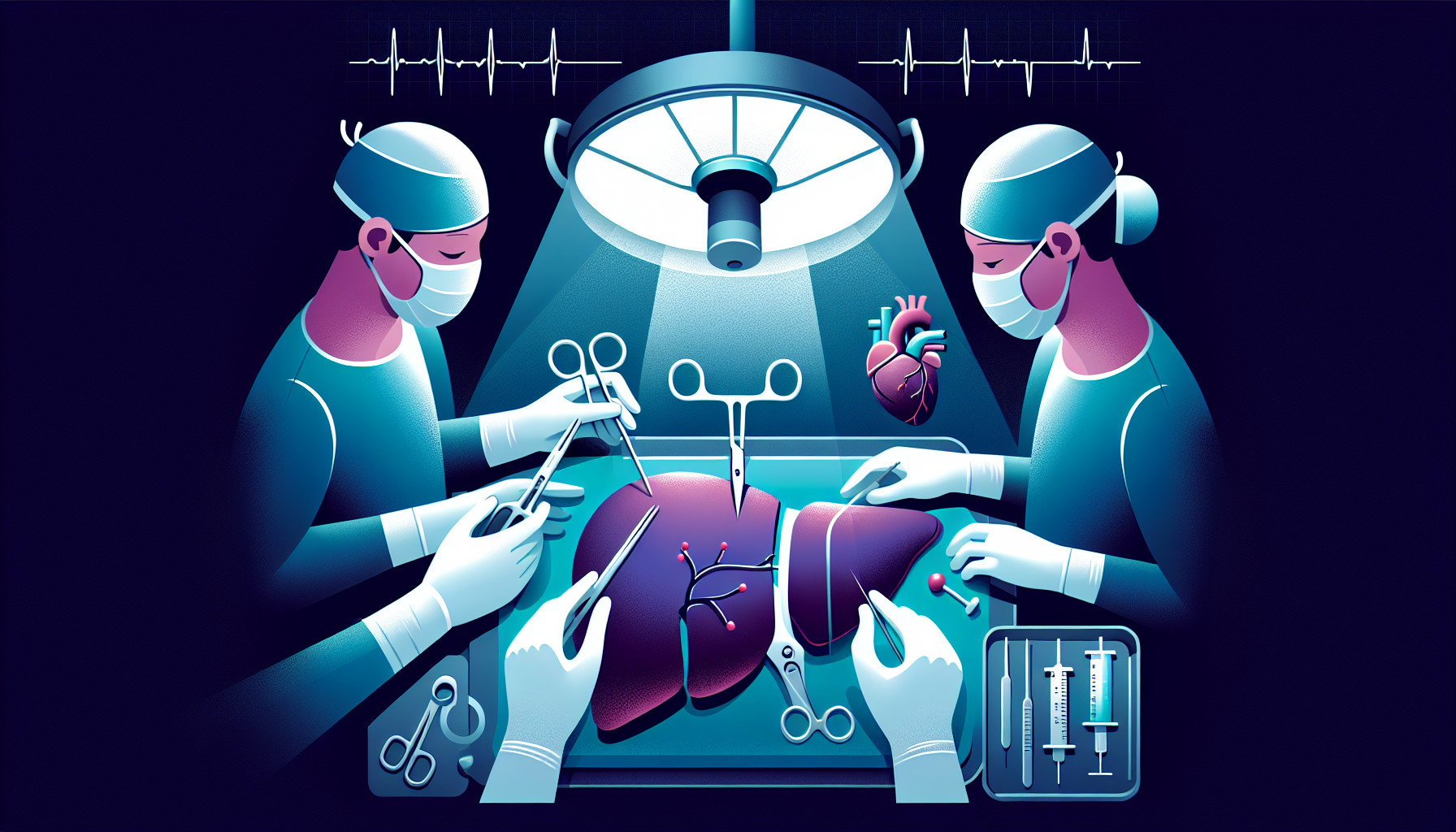Our Summary
This research paper discusses the development of acute kidney injury in patients with liver disease, both before and after liver transplant. Acute kidney injury can severely affect the patient’s prognosis, diagnosis, and treatment. Although not all causes of acute kidney injury can be reversed, some, such as dehydration, harmful medications, and acute tubular necrosis, can be corrected. After a liver transplant, kidney failure can lead to the new liver failing and overall worse health outcomes. However, if the kidney injury is quickly recognized and treated, it can significantly improve the patient’s survival and health outcomes.
FAQs
- What is the impact of acute kidney injury on patients with liver disease?
- Can all causes of acute kidney injury in liver disease patients be reversed?
- How can the recognition and treatment of kidney injury after a liver transplant affect the patient’s survival and health outcomes?
Doctor’s Tip
One helpful tip a doctor might tell a patient about liver transplant is to closely monitor their kidney function both before and after the transplant. This includes staying well-hydrated, avoiding harmful medications that can affect kidney function, and following up with regular blood tests to detect any signs of acute kidney injury early on. By taking proactive steps to protect kidney function, patients can improve their overall prognosis and reduce the risk of complications post-transplant.
Suitable For
Patients who are typically recommended for a liver transplant include those with end-stage liver disease, liver cancer, and certain liver disorders such as primary biliary cholangitis or autoimmune hepatitis. Patients with acute liver failure, caused by conditions such as drug overdose or hepatitis, may also be recommended for a liver transplant if their liver function does not improve with medical treatment.
In addition, patients with chronic liver disease who are experiencing complications such as ascites (fluid buildup in the abdomen), hepatic encephalopathy (brain dysfunction due to liver failure), or variceal bleeding (bleeding from enlarged veins in the esophagus or stomach) may be considered for a liver transplant.
It is important for patients with liver disease to be closely monitored by a healthcare provider to determine if they are a candidate for a liver transplant. The decision to undergo a liver transplant is based on a variety of factors, including the severity of the liver disease, the presence of complications, the patient’s overall health, and their ability to tolerate the transplant surgery and post-transplant medications.
Ultimately, the goal of a liver transplant is to improve the patient’s quality of life and survival by replacing their diseased liver with a healthy donor liver. By carefully selecting patients who are most likely to benefit from a liver transplant, healthcare providers can help ensure successful outcomes for these patients.
Timeline
Before liver transplant:
- Patients with liver disease may experience symptoms such as jaundice, fatigue, abdominal pain, and swelling.
- As liver function deteriorates, patients may develop complications such as ascites (fluid buildup in the abdomen), hepatic encephalopathy (brain dysfunction due to liver failure), and acute kidney injury.
- Acute kidney injury can be caused by a variety of factors, including dehydration, use of nephrotoxic medications, and reduced blood flow to the kidneys due to liver dysfunction.
After liver transplant:
- Following a successful liver transplant, patients undergo a period of recovery in the hospital, during which they are closely monitored for complications.
- Acute kidney injury may occur after liver transplant due to factors such as ischemia-reperfusion injury, immunosuppressive medications, and infection.
- Prompt recognition and treatment of acute kidney injury post-transplant are crucial to prevent further damage to the kidneys and the transplanted liver.
- Long-term monitoring and management of kidney function are essential for the overall health and survival of liver transplant recipients.
What to Ask Your Doctor
- What are the potential risks and complications associated with a liver transplant?
- How long is the recovery period after a liver transplant, and what kind of support will I need during this time?
- How will a liver transplant affect my kidney function, and what steps can be taken to prevent or manage acute kidney injury?
- What medications will I need to take after the transplant, and how will they impact my overall health?
- How often will I need to follow up with my medical team after the transplant, and what signs should I watch for that indicate a potential complication?
- Are there any lifestyle changes I should make post-transplant to ensure the success of the new liver?
- How will a liver transplant impact my long-term prognosis and quality of life?
- What is the success rate of liver transplants at this facility, and what factors could potentially impact the success of my transplant surgery?
- Are there any alternative treatments or therapies that could be considered instead of a liver transplant?
- How can I best prepare for a liver transplant, both mentally and physically?
Reference
Authors: DellaVolpe J, Al-Khafaji A. Journal: J Intensive Care Med. 2019 Sep;34(9):687-695. doi: 10.1177/0885066618790558. Epub 2018 Jul 30. PMID: 30060683
